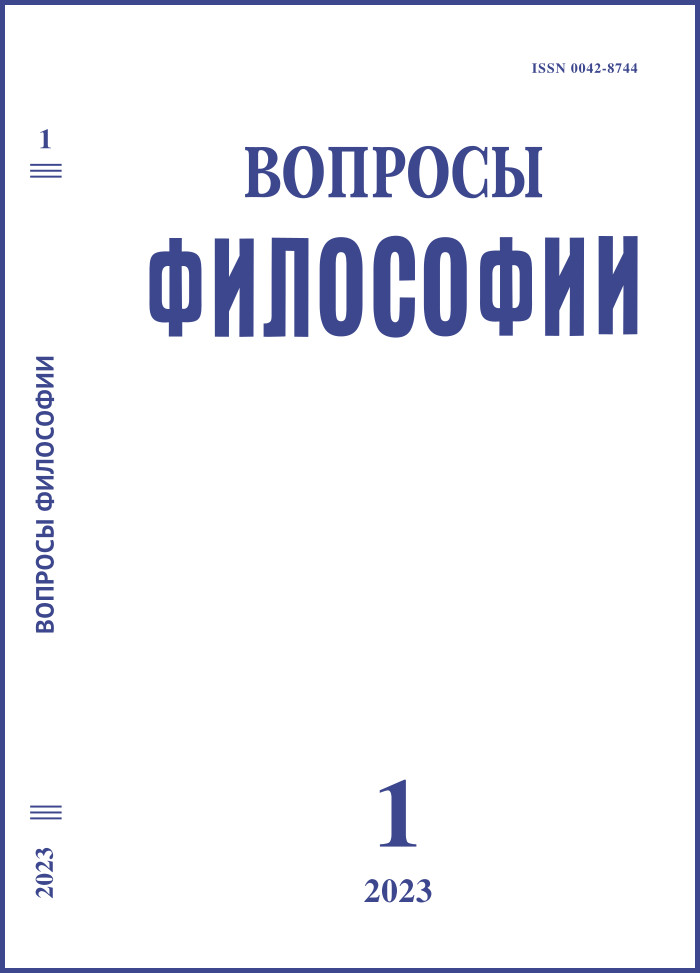Imyaslav Disputes in the Formation of Russian Metaphysics: V.F. Ern and A.F. Losev
DOI:
https://doi.org/10.21146/0042-8744-2023-1-198-208Keywords:
Imyaslav disputes, Russian philosophy, Russian metaphysics, Philosophy of the Name, V. Ern, A. Losev, S. Trubetskoy.Abstract
The article is devoted to the influence exerted by the imyaslav disputes on the formation of Russian religious metaphysics. The declared theme is considered on the example of philosophical projects of two authors: V.F. Ern and A.F. Losev. The attitude of these thinkers to the controversy around the Name of God is placed in the context of the development of their philosophical views. Parallels are traced between the metaphysical projects of Ern and Losev, considered as a part of a long process of development of Russian religious thought. The question of the deep kinship of the key aspect of the imyaslav disputes with the main problems of Russian philosophy is touched upon, which, according to the author’s hypothesis, made this initially purely theological controversy such an important event for the intellectual biography of a number of Russian thinkers. We are talking about the problem of the possibility of experiential knowledge of God, which has traditionally occupied an important place in Russian ontology and epistemology and has become the subject of theological discussion in the context of imyaslav movement. Ern and Losev develop their projects in this traditional way, inheriting the Slavophiles (primarily I.V. Kireevsky), Vl.S. Solovyov and S.N. Trubetskoy. At the same time, they accepted the problematics of imyaslav movement, in which they saw the embodiment of “ecclesiastical Platonism”, opposed to “ecclesiastical Kantianism”, thus including it in the discussion of key philosophical issues. The article touches upon the problem of numerous parallels between the works of Ern and Losev and the possible influence of the first on the second one. Based on Losev’s early works, the author seeks to trace his way to the formation of a large-scale metaphysical synthesis in later works

